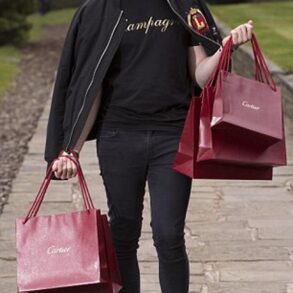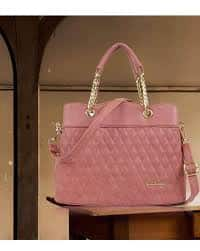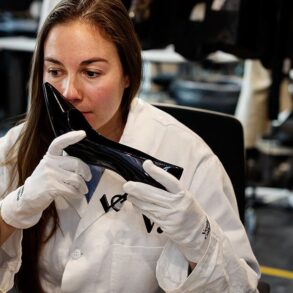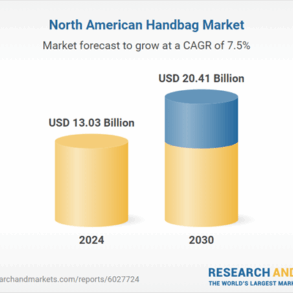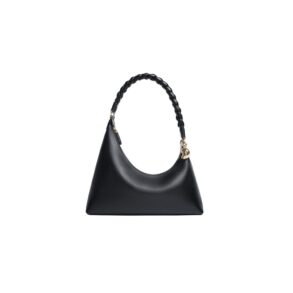(Bloomberg) — Burberry’s new boss is calling time on the British fashion label’s decade-long attempt to join the upper ranks of global luxury.
Most Read from Bloomberg
Joshua Schulman, the straight-talking chief executive officer who took over in July, said Wednesday Burberry Group Plc will slash up to 1,700 roles — about a fifth of its workforce — amid a historic slump in sales. But he also took aim at decisions made by his predecessors, saying the company moved too far from its trench-coat roots with its foray into niche designs and expensive handbags.
“The juice wasn’t worth the squeeze on that,” Schulman told analysts. “We had a runway brand expression that was unfamiliar and did not resonate.”
Burberry’s fall from grace has been brutal, with sales for the last 12 months slumping to the lowest since 2014, amid weak global demand for high-end goods and more recent concerns about President Donald Trump’s trade tariffs.
Schulman, though, is looking back further for what he wants to fix. Over the past decade Burberry has cycled through three CEOs, three creative designers, a mocked monogram and a mish-mash of efforts to ‘elevate’ the brand.
For a while it appeared to work — at least in terms of Burberry’s stock price, which peaked in 2023 as fashion labels enjoyed a post-pandemic boom of pent up spending.
Yet Burberry has very little to show for a decade of effort, with lackluster revenue, falling profit and its ouster from the UK’s benchmark FTSE 100 index last year. Even after a surge on Wednesday, the shares are down more than 60% from their post-pandemic high.
Cutting costs is at the heart of Schulman’s plan to fix Burberry. The CEO, who previously ran Coach and Michael Kors, said the job losses will be primarily office-based roles including at its headquarters near London’s iconic Big Ben landmark, although there will be some cuts elsewhere.
Even Castleford, Burberry’s spiritual home in northern England where its signature trench coats are made, has not been spared: night shifts will be scrapped to reduce over-production and to help eke out a further £60 million ($80 million) of savings over the next two years, on top of the £40 million already planned.
Schulman also said Burberry would refocus on outerwear, be it trench coats, scarves or even bikinis. The company is also betting that its traditional check trims on polo shirts and dresses will drive sales throughout the year.
Investors, whose dividend payments remain suspended, sent Burberry’s shares up 17% at the close on Wednesday.
“The old saying is never let a good crisis go to waste. Schulman is showing he understands that well,” said Cole Smead, a portfolio manager at Smead Capital Management. “We think we are being given a unique brand on the cheap.”
Still, while Burberry’s latest results were better than analysts expected, Schulman and Chief Financial Officer Kate Ferry warned of uncertainty around tariffs in the US, which accounts for 19% of the company’s sales and where they said trading was particularly choppy starting from February.
The problem is compounded by the slowdown in Asia Pacific, which generates almost half of Burberry’s sales.
“It has been unusual for both America and China to be struggling at a similar time,” Schulman said. “The history of luxury is that China and America have acted as a hedge to each other.”
The CEO described his radical restructuring plan as difficult but necessary given Burberry’s challenges.
Ending the night shift at the Castleford will put 170 jobs at risk, about a third of the facility’s workforce, according to Darran Travis, the GMB union representative for the workers at the plant.
“We accept we haven’t been in good times, with too much production and falling sales, so we’ll work with Burberry,” Travis said by phone Thursday. “We’re in a deprived area, a former coal-mining area, it’s an area in serious decline.”
The other part of Schulman’s strategy, to pull company back closer to its heritage, ends a gamble on high fashion that ultimately flopped.
“Either the circumstance have crafted his decisions or he has the wisdom to make these changes that seem pragmatic,” Smead said of Schulman’s moves. “Time will tell, but our investors are betting on the latter.”
–With assistance from Kit Rees.
(Updates with labor union representative’s comment four paragraphs from bottom.)
Most Read from Bloomberg Businessweek
©2025 Bloomberg L.P.
This post was originally published on this site be sure to check out more of their content.



